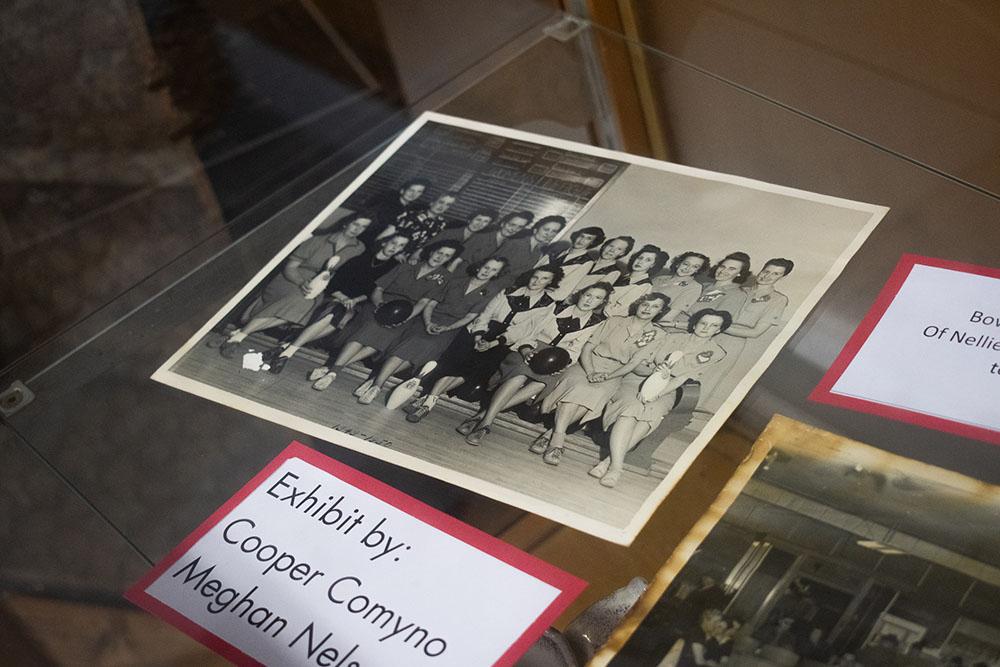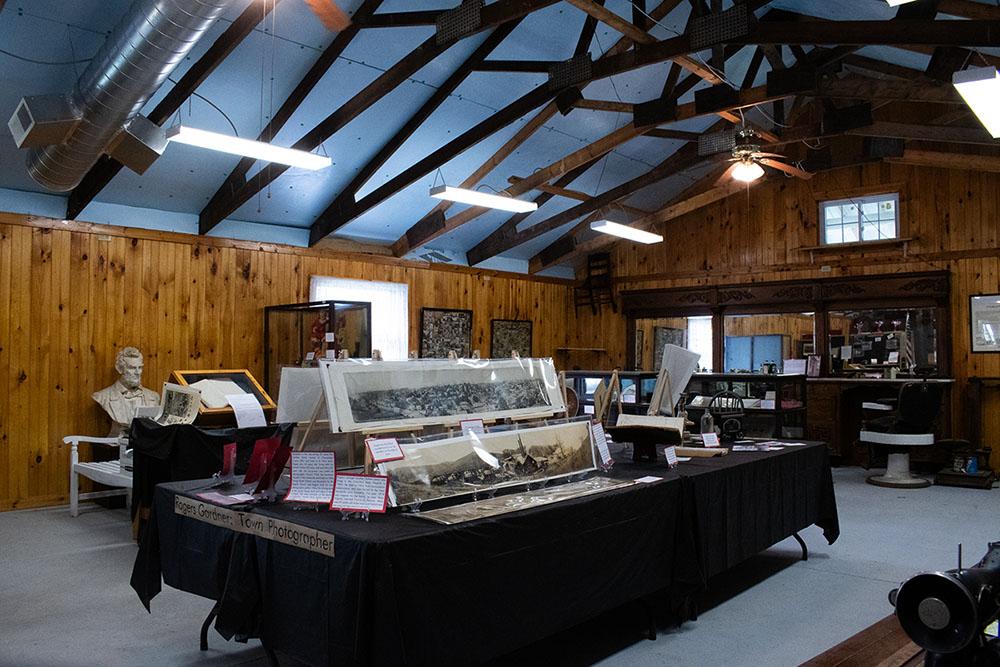
From classroom to community: Ohio history gets a helping hand from students

While many college students spend their Saturday mornings sleeping in, a dedicated group at Ohio University is hard at work preserving the history of southeastern Ohio.
The students spend their weekends in New Straitsville, a former coal mining town located in southeastern Perry County, collecting artifacts and preserving documents to help others understand the region’s rich history.
Nancy Tatarek, Ph.D., an associate professor of anthropology in the College of Arts and Sciences, began researching the community more than a decade ago. She said the project is an illustration of how the University impacts local communities through service.
“I don’t believe in going into a place and simply taking data, for example, and leaving,” Tatarek said. “I believe it should be a partnership.”
Last month, she led a group of students in removing mold from thousands of pages of the town’s historical documents. The records date back over a hundred years and include court documents, birth certificates and even ordinances about pigs in the streets.

Tatarek said the documents are a window into News Straitsville’s past. “These are the first official things that the town passed after they got incorporated,” she said. “So, it really speaks to what was on their minds, you know, in 1872.”
In 2019, the records were nearly lost after flooding caused damage to the town’s old jailhouse. While some of the documents suffered mold and water damage, Tatarek and her students successfully relocated the records.
“It’s pretty amazing,” Tatarek said. “Without those kinds of students' help, we would not have been able to save probably even a quarter of [the documents].”
Students are now actively cleaning the records to prevent further mold growth.
“We're going through a process of mold remediation, which means every page, every single piece of paper, has to go through a process where we try to get the mold off of it, which is a lengthy process because you've got thousands of pages.”
The next stage will involve digitizing the collection, an effort to make the town’s entire history publicly accessible. Without this, Tatarek said people risk forgetting New Straitsville's history and the broader “American experience.”
“Small towns can have a lot to say about American history,” she said. “It's not just the town's history, but it's also these little moments where the town pulls in these wider American stories and American events.”
Today, New Straitsville offers a deeper understanding of Appalachia’s long history of exploitation.
New Straitsville was founded in 1870 as a coal mining town, and its population grew quickly as jobs and immigration surged.
But a labor strike in 1884 led to a fateful decision. Miners, seeking better pay and working conditions, set fire to coal cars to halt mining operations, unintentionally igniting a massive underground fire.
The fire rendered the coal mines inoperable and forced many residents to flee. Despite the odds, a determined group of residents chose to stay and sought out alternative industries including brick manufacturing and iron production.
Susan Miller, the fiscal officer of New Straitsville, emphasized the importance of preserving the town's documents and artifacts in maintaining this history.
“If we didn’t preserve these, if we didn’t go through and look at them, I don’t think we’d have a clue of all the struggles and achievements that the town’s been able to do,” Miller said.
With the help of Tatarek and Ohio University students, Miller has documented the town’s history through a collection of artifacts in the New Straitsville History Museum. The townspeople have provided most of the collection.

“Everything’s changing,” Miller said. “We want people to be able to come to the museum and step back in history and see the struggle and achievement timeline. And we can do that with these documents.”
Tatarek’s students are responsible for turning artifacts into museum exhibits, highlighting different pieces of the town’s history.
One of these students was Lee Sites, an Ohio University alum who graduated with a degree in anthropology and a certificate in museum studies. Sites recently returned to Ohio after earning master’s degrees from Bath Spa University in the UK and now volunteers at the New Straitsville History Museum.
Sites believes that the museum is significant in shaping the future of the town. “New Straitsville is seeing a rise,” Sites said. “I hope that they continue to see this growth and continue to see volunteers coming in.”
Along with Tatarek’s students gaining real-world experience, the partnership with New Straitsville serves as a way to preserve the past so that the region can have a future. This is an integral part of Tatarek’s research mission.
“If we can form collaborative relationships with different organizations in different towns, that can work towards saving history,” Tatarek said.
